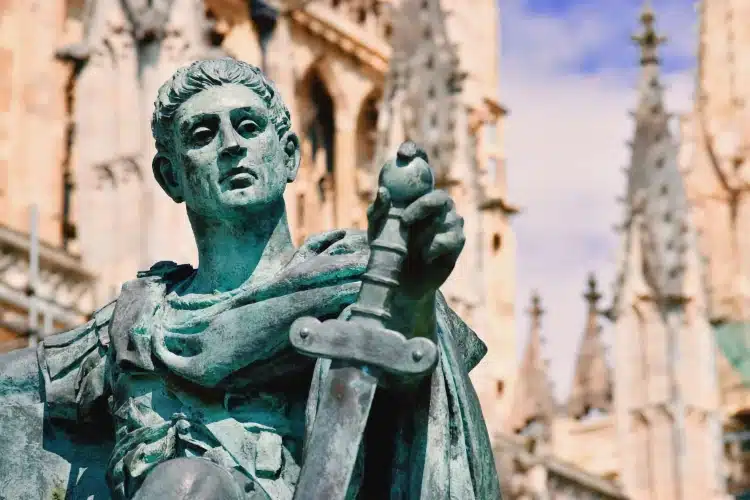In the vast tapestry of history, certain individuals emerge as beacons of inspiration and transformation. Among them, Constantine the Great not only left an indelible mark on the Roman Empire but also forever altered the course of Christianity. His rise to power and subsequent conversion led to a series of events that would shape the future of a religion, transforming it from a persecuted faith into an integral part of the Roman Empire. This article explores the life and impact of Constantine the Great, highlighting his profound influence on the spiritual landscape of his time.
The Rise of a Great Leader
Constantine, born in 272 AD in Naissus (today Niš, Serbia), came from humble beginnings as the son of a military officer. However, his ambition, tactical brilliance, and charismatic personality propelled him to become one of history’s most prominent figures. Through a series of military victories and strategic alliances, he ascended to the position of emperor, uniting the vast Roman Empire under his reign.
The Vision at the Battle of Milvian Bridge
One pivotal event that marked a turning point in Constantine’s life and the history of Christianity was his vision before the Battle of Milvian Bridge in 312 AD. According to accounts, he saw a cross of light in the sky, accompanied by the words, “In hoc signo vinces” (In this sign, you will conquer). Inspired by this divine encounter, Constantine ordered his soldiers to adorn their shields with the sign of the cross, believing it to be a symbol of victory. The subsequent triumph solidified his belief in the power of Christianity and shaped his reign thereafter.
The Edict of Milan
Recognizing the growing appeal of Christianity and its potential to unify the empire, Constantine issued the Edict of Milan in 313 AD alongside his co-emperor Licinius. This landmark decree granted tolerance to all religions, ending the persecution faced by Christians and enabling the free practice of their faith. Constantine’s decision not only protected Christians but also paved the way for the eventual recognition of Christianity as the dominant religion within the Roman Empire.
Promoting Christian Practices
Constantine’s personal conversion to Christianity and subsequent actions had a profound impact on the religion’s growth and recognition. He actively supported the establishment and construction of Christian churches, such as the famous Basilica of St. Peter in Rome, which became a symbol of his dedication to the faith. The emperor’s involvement in religious matters was unprecedented, elevating the status of Christianity and forging an inseparable bond between the empire and the Church.
The Council of Nicaea
One of Constantine’s most influential contributions to Christianity was his role in convening the Council of Nicaea in 325 AD. This ecumenical gathering brought together Christian bishops from across the empire, with the goal of resolving theological disputes and establishing a unified doctrine. The council resulted in the Nicene Creed, a statement of faith that defined and affirmed core Christian beliefs. Constantine’s involvement in this event showcased his commitment to ensuring the stability and orthodoxy of the emerging Christian faith.
Constantine the Great Ushered a New Era
Constantine the Great, through his victories, political astuteness, and personal devotion, ushered in a new era for Christianity in the Roman Empire. His vision at the Battle of Milvian Bridge, the Edict of Milan, his promotion of Christian practices, and his convening of the Council of Nicaea all paved the way for the religion’s subsequent growth and eventual dominance. Today, Constantine’s legacy stands as an inspiration for individuals who seek to transform themselves and leave an enduring impact on the world, reminding us that even in the face of challenges, determination and faith can shape the course of history.
